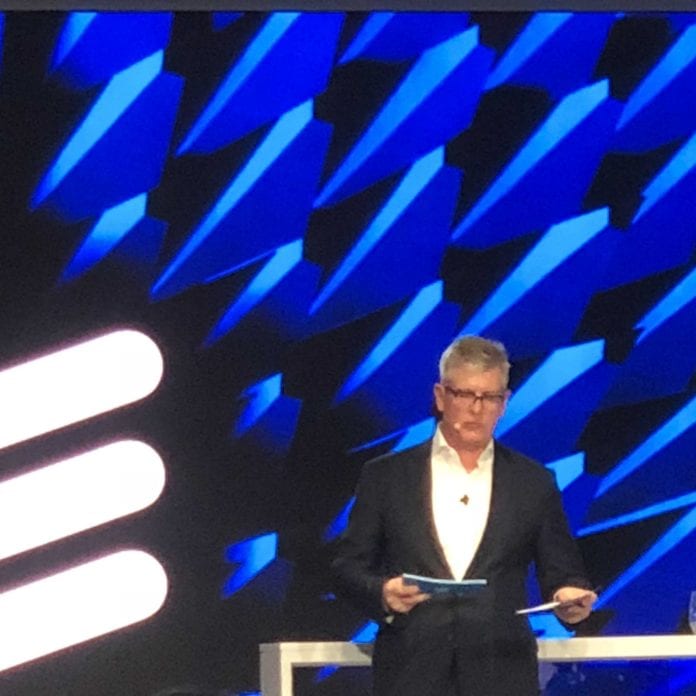5G can reduce energy consumption, advance economic development and create jobs, Eckholm says
With the 2020 installment of the World Economic Forum focused on fostering global sustainability, business leaders from the telecoms sector are touting 5G and adjacent technologies as a key driver of cross-industry efficiencies, including to environmental impact.
One high-level vector for efficiency as a function of 5G is the impact on operator use of energy. As Ericsson CEO Börje Eckholm laid out in a blog post ahead of the WEF, 5G in and of itself will cut the amount of energy used by operators and, when adopted by other industries, will cut energy use by helping streamline operations.
“Every previous generation of mobile networks has increased energy consumption and carbon emissions until now. 5G is the most energy efficient standard ever developed,” Eckholm wrote. “In addition, ICT solutions can enable reductions of 15% across other industrial sectors by 2030…Emerging technologies–enabled by 5G–will be fundamental means for industries, cities and countries to reduce their carbon footprints exponentially.”
In addition to the energy angle, Eckholm called out the correlation between access to mobile broadband to economic development and projected that 5G will be the go-to platform for workforce connectivity in the next decade. And adoption will be key to future success, he said.
“For industries, the frontrunners first to 5G will enjoy industry leadership with the global scale of a horizontal platform. This is already becoming a reality in manufacturing and production, electronics and the automotive industries.”
Citing Ericsson research, Eckholm said industrial digitalization investments will create a $700 billion “addressable market opportunity” for operators over the next 10 years.
The current focus of 5G deployment is on providing enhanced mobile broadband to consumers, although in markets like Germany there is early interest from industrials around private 5G networks; that’s largely a confluence of a technologically-advanced industrial base and regulatory foresight.
But the point remains that enhancements to 5G around latency and reliability will position operators to iterate offerings to best address specific industries like mining, manufacturing, automotive and the like.
According to Ericsson’s SVP and Head of Business Area Services Jan Karlsson, “Service providers should prepare to cultivate new 5G-enabled enterprises, and shape industry development that truly monetizes 5G…Addressing industries separately and looking at one use case at a time probably isn’t the most optimal way to create the synergies needed to be cost-competitive when entering a new market.”
In his blog, Eckholm wrote that, “5G will be the foundation for innovation in the Fourth Industrial Revolution…The promise of 5G and the Fourth Industrial Revolution includes creating jobs, improving and expanding access to health care. It will also help to reduce carbon emissions, improve education and raise the quality of life in cities around the world.”

